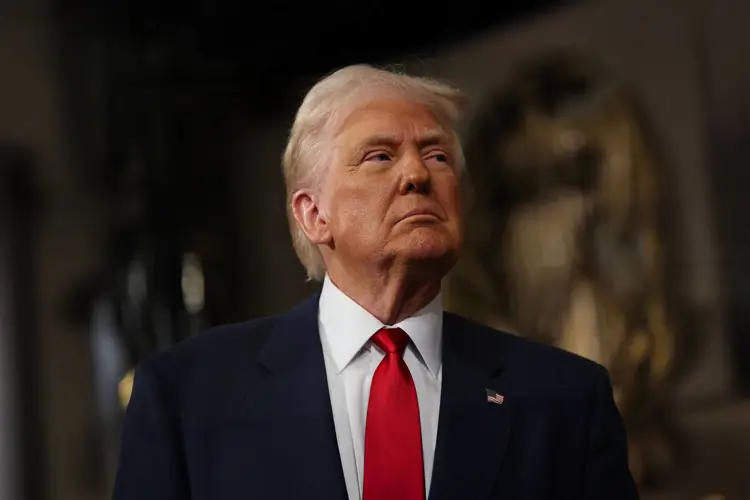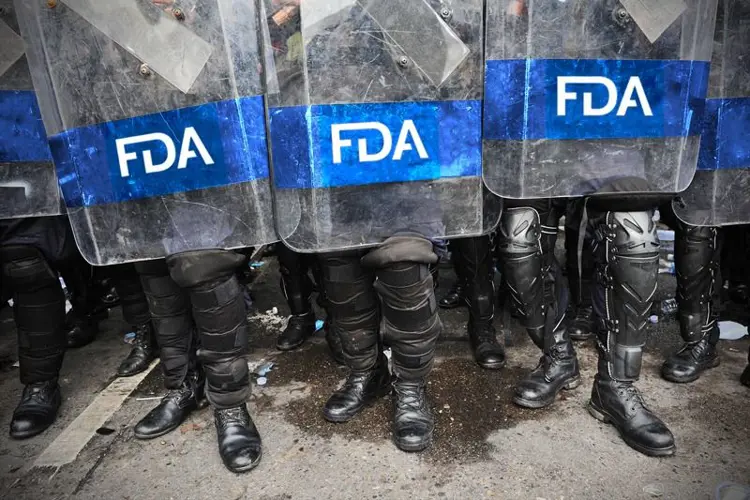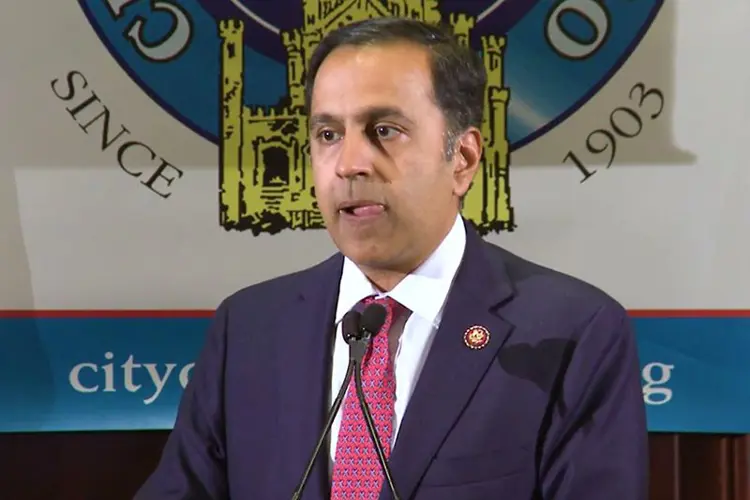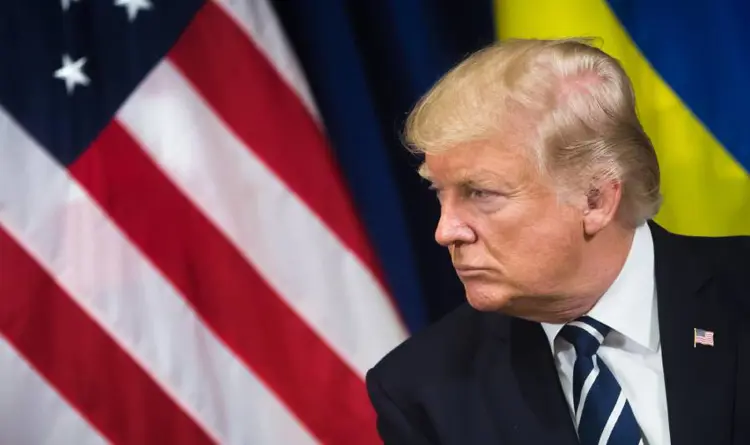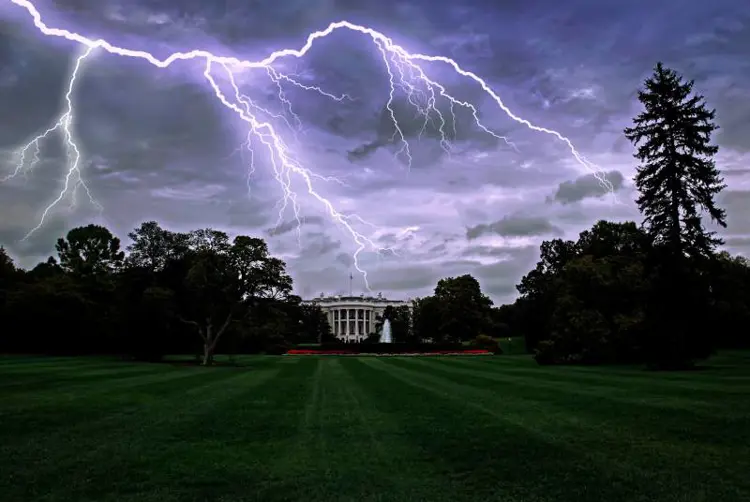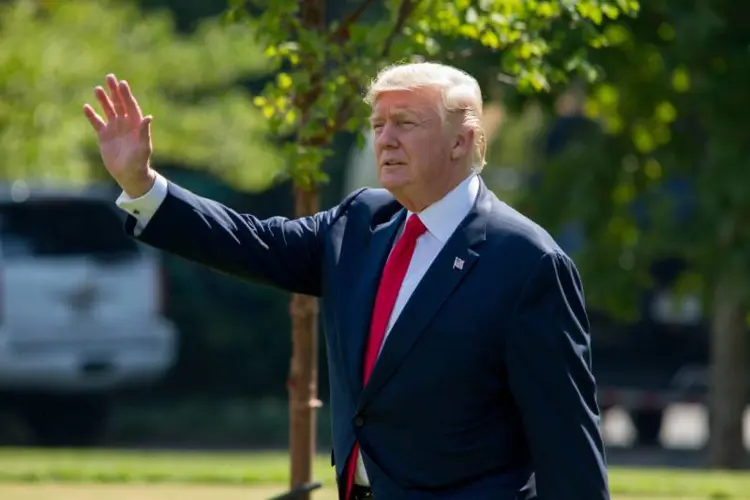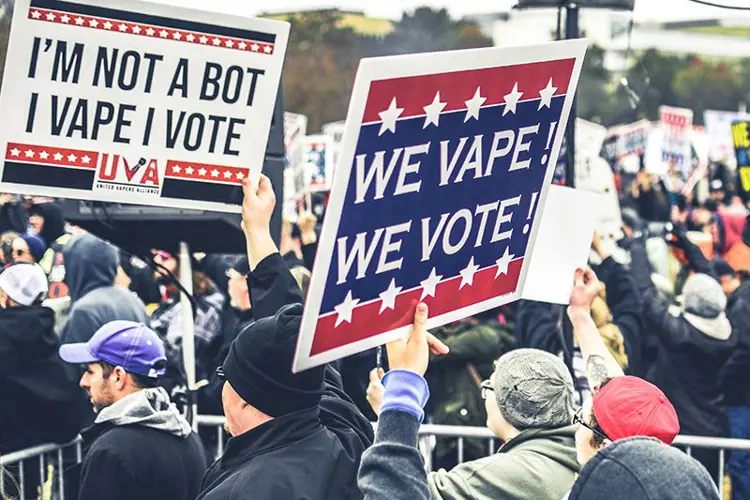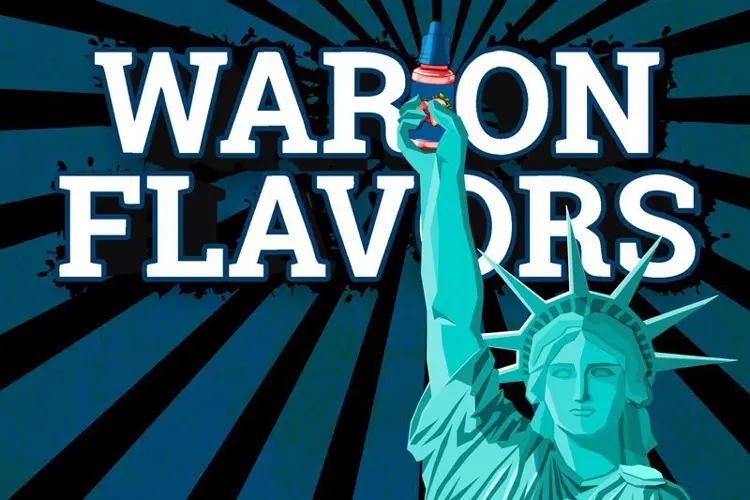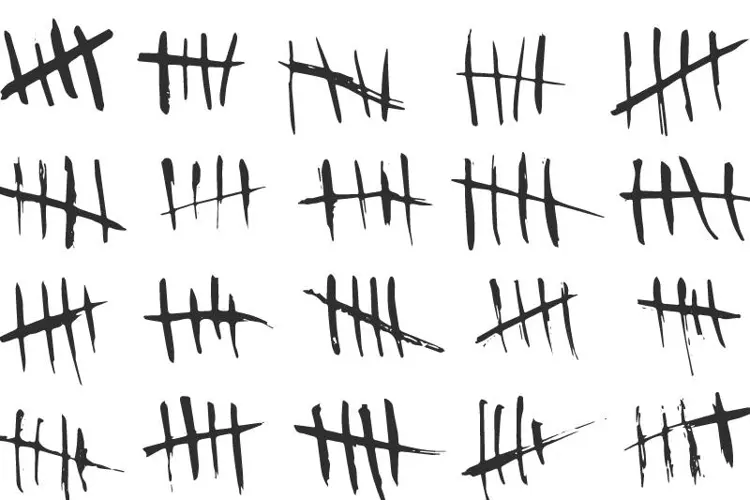In a press release that reads like something from the Drug War era, the FDA today announced the formation of a “multi-agency task force” to crack down on the sale of popular vaping products that have not received FDA authorization. The targeted products are sold online, and in most vape shops, convenience stores and gas stations.
The task force, led by the FDA and Justice Department (DOJ), will also include as “enforcement partners” the Bureau of Alcohol, Tobacco, Firearms and Explosives (ATF); the U.S. Marshals Service (USMS); the U.S. Postal Inspection Service (USPIS); and the Federal Trade Commission (FTC).
The goal, says the press release, is “to coordinate and streamline efforts to bring all available criminal and civil tools to bear against the illegal distribution and sale of e-cigarettes responsible for nicotine addiction among American youth.” Additional agencies may join the task force soon, the FDA notes.
It’s all about the kids, of course
“Enforcement against illegal e-cigarettes is a multi-pronged issue that necessitates a multi-pronged response,” said FDA Center for Tobacco Products (CTP) Director Brian King. “This ‘All Government’ approach—including the creation of this new Task Force—will bring the collective resources and experience of the federal government to bear on this pressing public health issue.”
“Unauthorized e-cigarettes and vaping products continue to jeopardize the health of Americans—particularly children and adolescents—across the country,” said Acting Associate Attorney General Benjamin C. Mizer.
The federal government—led by the FDA—continues to cloak its desire for vaping prohibition in concerns over youth use, despite declining rates of youth vaping and smoking. High school vaping has fallen to its lowest level since 2013, and youth vaping is down over 60 percent since its 2019 peak. And thanks to vaping, teenage smoking is all but extinct.
But, despite sinking youth vaping rates, the task force partners are determined to break down some doors and slap on handcuffs, like in the good old Drug War days.
The feds haven’t forgotten the PACT Act
It seems clear that much of the task force's activity will center around online sales and shipments of vaping products. In December 2020, Congress passed the Preventing Online Sales of E-Cigarettes to Children Act, which did two things: prohibited delivery of vapes by U.S. Mail (often called the Vape Mail Ban), and inserted vapes into the 2009 Prevent All Cigarette Trafficking (PACT) Act.
The PACT Act requires online vape sellers to register with the ATF and U.S. Attorney General’s office, and with state and local tax administrators in all states and localities where the sellers do business. They are required to collect and pay all applicable local and state taxes, and affix required tax stamps to the products sold, and then to send a monthly list of all transactions to each state’s tax administrator that includes the names and addresses of each customer, the quantities and type of each product sold, and the name, address, and phone number of the person delivering the shipment to the recipient.
The federal law backs these stringent standards with severe criminal penalties that can include huge fines and prison sentences.
The Preventing Online Sales of E-Cigarettes to Children Act doesn’t just apply to nicotine vapes, by the way. Its provisions cover all e-liquid and cannabis oil vaping devices; nicotine and nicotine-free e-liquids; CBD and hemp-derived THC carts, liquids and oils; and every related component, part or accessory intended for use with those products.
Compliance with the PACT Act and state tax regulations is expensive and difficult. But online retailers that ignore or fudge the federal rules around tax compliance and product shipping could face serious problems at the hands of the new task force. Many online vape sellers have likely made themselves targets for PACT Act enforcement with lax compliance and shipping practices.
“The PACT Act is an important tool for preventing the unlawful sale of e-cigarettes to minors online. ATF looks forward to working with other components of the Department of Justice and USPIS to enforce the law,” said ATF Director Steven M. Dettelbach.
Online vape and hemp sellers should take this threat very seriously.
The FDA’s lack of product regulation is the crisis
“The Justice Department is committed to enforcing the laws that prevent the sale and distribution of unlawful e-cigarettes,” said DOJ Civil Division head Brian Boynton. “We will work closely with our Task Force partners to address this crisis with all of the enforcement tools available to us.”
The real crisis for the FDA is that the vape-consuming public doesn’t like the seven terrible devices authorized by the FDA (along with a handful of tobacco-flavored refills), and insists instead on buying effective open-system devices and flavored e-liquids, or convenient disposable vapes.
The FDA hasn’t authorized the sale of any vaping products in a flavor other than tobacco, any bottled e-liquids, or any high-capacity disposables. All the products the agency has authorized are unpalatable or underpowered, and all of them combined account for just a few percent of the convenience store vape market, and almost none of the vape shop and online markets.
The FDA-authorized vapes—all manufactured by Big Tobacco-owned companies—earned a green light from the FDA precisely because almost nobody likes them, and the agency obviously has no intention of authorizing anything people actually want. That stubbornness has led to an ever-expanding gray market in which legitimate businesses sell products that may or may not be legal by hazy FDA standards.
The FDA hasn’t authorized the sale of any vaping products since the appointment of current CTP Director Brian King two years ago, and it is King’s and the FDA’s pig-headed determination to deny reality that has created the gigantic mess the FDA now faces. If the agency had behaved like every other product regulator, it would have recognized the vape product features 10-20 million American consumers want, created published safety standards that must be met, and presided over a well-regulated market that wouldn't require armed police to maintain.
Instead, the FDA is forming an enforcement task force and sending federal police agencies to round up thousands of “outlaws” the agency itself created by refusing to acknowledge public demand for attractive and effective legal vape products.
The Freemax REXA PRO and REXA SMART are highly advanced pod vapes, offering seemingly endless features, beautiful touchscreens, and new DUOMAX pods.
The OXVA XLIM Pro 2 DNA is powered by a custom-made Evolv DNA chipset, offering a Replay function and dry hit protection. Read our review to find out more.
The SKE Bar is a 2 mL replaceable pod vape with a 500 mAh battery, a 1.2-ohm mesh coil, and 35 flavors to choose from in 2% nicotine.
Because of declining cigarette sales, state governments in the U.S. and countries around the world are looking to vapor products as a new source of tax revenue.
The legal age to buy e-cigarettes and other vaping products varies around the world. The United States recently changed the legal minimum sales age to 21.
A list of vaping product flavor bans and online sales bans in the United States, and sales and possession bans in other countries.







